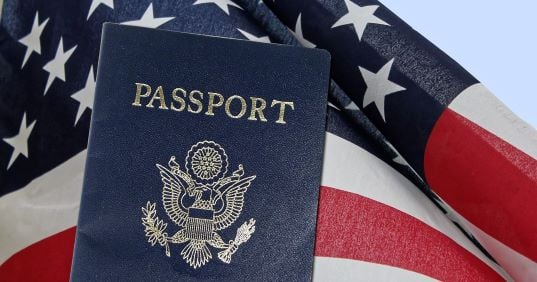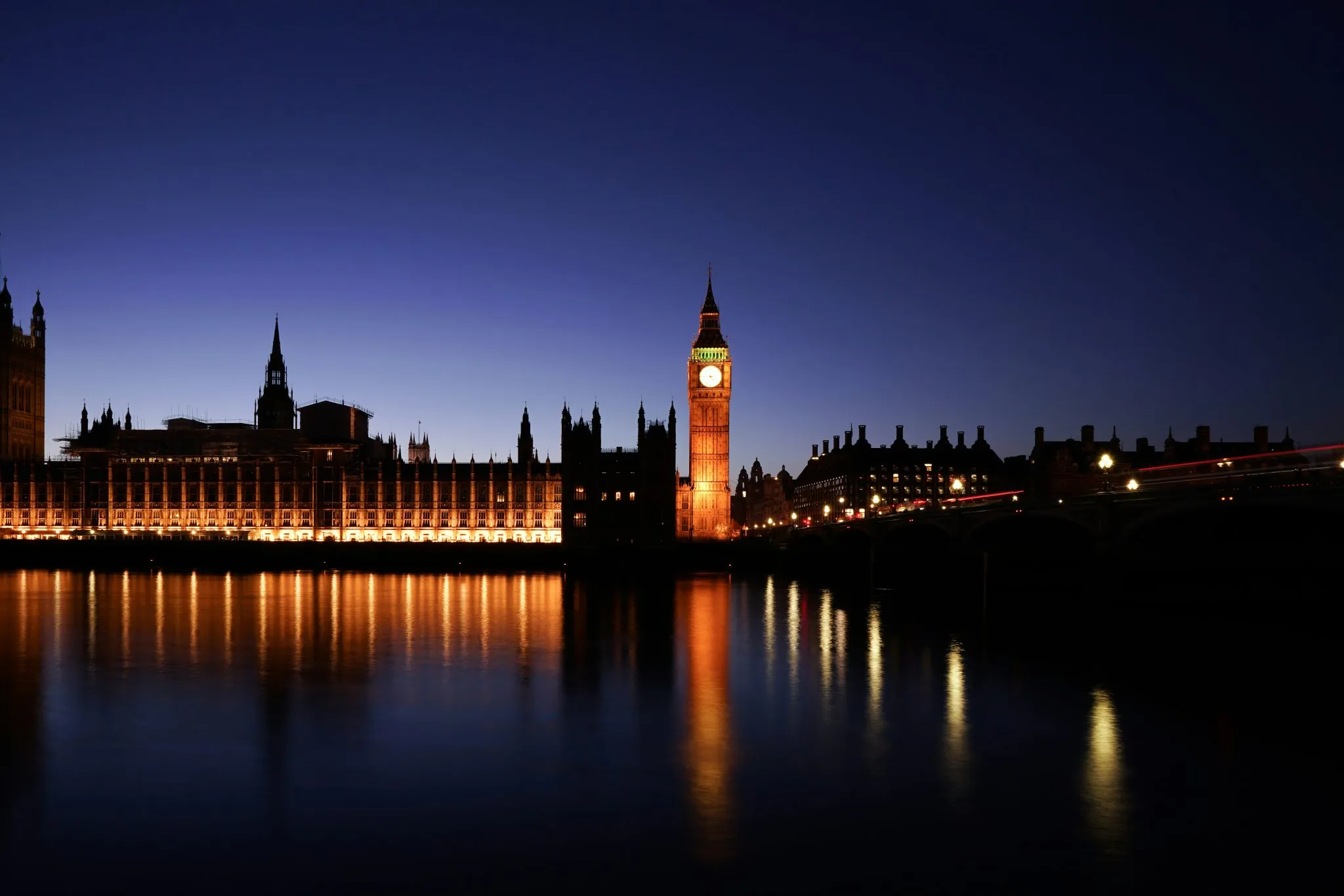EEA Family Member Proof of Dependency
If you are a family member of an EEA or Swiss citizen or person of Northern Ireland, then you can join them in the UK using the EU Settlement Scheme.
This scheme allows family members of EEA or Swiss citizens and persons of Northern Ireland to join their loved ones in the UK.
At Immigration Advice Service, our team of expert immigration solicitors can provide comprehensive assistance and guidance throughout the EU Settlement Scheme application process, ensuring that your application is successful. Contact us on 0330 311 6351 or find us online for an initial consultation.
Read our 1001 reviews
EU Settlement Scheme
The EU Settlement Scheme is a UK government scheme designed to allow EU citizens and their families to remain in the UK after Brexit.
To be eligible, EU citizens must have been residents in the UK for at least five years. They will need to provide evidence of their residency, such as a passport or national insurance number, as well as proof of their identity.
EU citizens who have not been resident in the UK for five years can apply for pre-settled status, which will grant them leave to remain in the UK for up to five years.
After five years, they can then reapply for settled status. The application process is free of charge and can be done online.
Successful applicants will be granted either settled or pre-settled status, which will allow them to continue living and working in the UK.
EU citizens with settled status will also be able to access public services, such as full health insurance and education, and will have the same rights as British citizens.
Understanding the eligibility criteria
If you arrived in the UK by 31 December 2020
If you arrived in the UK by 31 December 2020, then you will be eligible to apply for settled status. This means that you will be able to live and work in the UK indefinitely and will have access to public services, such as healthcare and education. You will also be able to travel freely in and out of the UK.
If you arrived in the UK after 31 December 2020 or have not yet arrived
If you arrived in the UK after 31 December 2020 or have yet to arrive, then you will be eligible to apply for pre-settled status. This means that you will be able to live and work in the UK for up to five years. After five years, you can then reapply for settled status. Eligibility after 31 December 2020 states that you must either be:
An EU, EEA or Swiss citizen with an EU, EEA or Swiss family member who arrived by 31 December 2020 and has either settled or pre-settled status.
An EU, EEA or Swiss citizen who arrived by 31 December 2020 and has either settled or pre-settled status.
A person with an EU, Swiss or EEA national family member who is a frontier worker and who arrived by 31 December 2020.
Eligible Family Members
To be eligible to join an EU citizen in the UK under the EU Settlement Scheme, you must be their spouse or civil partner, unmarried partner, child, grandchild, or great-grandchild. You will also need to provide evidence of your relationship with the EU citizen. If you are not related to the EU citizen but are their dependent relative, you may also be eligible to join them in the UK.
How to Provide Evidence That You’re a Family Member of an EEA or Swiss Citizen or Person of Northern Ireland
If you are applying to join your family member in the UK under the EU Settlement Scheme, you will need to provide evidence of your relationship with them.
This can be done by providing a marriage certificate, civil partnership certificate, or birth certificate.
If you are the unmarried partner of an EU citizen, you will need to provide evidence of your cohabitation, such as utility bills or a lease agreement.
If you are the dependent relative of an EU citizen, you will need to provide evidence of your dependence on them, such as a letter from them confirming your dependency.
Documents You Must Provide
When applying to join your family member in the UK under the EU Settlement Scheme, you will need to provide evidence if you fall under the following categories:
Evidence if you’re a spouse or civil partner
If you are applying to join your spouse or civil partner in the UK under the EU Settlement Scheme, you will need to provide evidence of your relationship with them.
The relationship evidence you will need to provide depends on your situation:
If you are married to an EU citizen, you will need to provide your marriage certificate.
If you are in a civil partnership with an EU citizen, you will need to provide your civil partnership certificate.
If you have been married or in a civil partnership for less than three months, you will need to provide evidence that you have been living together for at least three months before applying. This can be done by providing utility bills or a lease agreement.
If you are a non-EU citizen married to an EU citizen, you will need to provide your passport and evidence that you have the right to live in the UK, such as a residence card or permanent residence card.
If you got married or formed your civil partnership after 31 December 2020, you’ll also need evidence that you were their unmarried partner before that date.
Evidence if you’re an unmarried partner
If you’re applying to join your unmarried partner in the UK under the EU Settlement Scheme, you will need to provide evidence of your cohabitation.
This can be done by providing utility bills or a lease agreement. You will also need to provide evidence that you have been living together for at least 2 years before applying.
Relevant documents to show you’ve been in the UK for at least 6 months before 29 March 2019 include:
- Your passport
- Travel history – for example, boarding passes or travel tickets
- Bank statements
- Pay slips
- Tenancy agreements
- Utility bills
Valid documents required for an unmarried partner include:
- A family permit issued under the EEA Regulations.
- An EU Settlement Scheme family permit.
- A letter from the Secretary of State confirming that you have an outstanding application or appeal with the Home office.
- If you are a non-EU unmarried partner of an EU citizen, you will need to provide your passport and evidence that you have the right to live in the UK, such as a residence card or permanent residence card.
Evidence if you’re their child, grandchild or great-grandchild
If you are applying to join your parent, grandparent, or great-grandparent in the UK under the EU Settlement Scheme, you will need to provide your birth certificate.
If you are under the age of 21, you will also need to provide evidence that you are dependent on them. This can be done by providing a letter from them confirming your dependency.
If you are over the age of 21, you will need to provide evidence that you are their primary carer. Evidence to show dependency on parents and grandparents includes:
- Evidence of your financial dependencies, such as bank statements or pay slips.
- Evidence of your accommodation, such as utility bills or a tenancy agreement.
- Evidence of you needing and receiving the personal care of your parent or grandparent, such as due to a disability or serious health grounds.
If you are the child of an EU citizen who is not married to or in a civil partnership with your other parent (known as a non-Marital Child), you will need to provide evidence of this.
This can be done by providing your birth certificate and one of the following:
- A court order giving sole responsibility to the EU citizen parent.
- A death certificate of the non-EU citizen parent.
- Evidence that the non-EU citizen parent has never had parental responsibility, such as a birth certificate showing only the EU citizen parent’s details.
If you are the child of an EU citizen and your other parent is a British citizen, you will not need to provide evidence of your relationship to the EU citizen parent.
If you are the child of an EEA or Swiss national and were born after they acquired settled status or permanent residence, you will need to provide your birth certificate and one of the following:
- Your parent’s biometric residence card.
- Your parent’s permanent residence card.
- Your parent’s registration certificate.
If you’re the dependent parent or grandparent of an EEA or Swiss citizen, or a person with settled status, you can apply to join them in the UK. You must:
- Be aged 65 or over.
- Financially dependent on your family member.
- Have lived together outside the UK for at least 12 months before they applied.
Evidence if you’re their dependent relative (extended family member)
You can only apply as a dependent relative if you arrived in the UK by 11 pm GMT on 31 December 2020. If you’re applying as a dependent relative, you need to provide evidence that:
You’re related to them in one of the ways, brother, sister, aunt, uncle, nephew, niece or cousin among other extended family members.
Evidence to show dependency on a dependent relative includes:
- Evidence of your financial dependencies, such as bank statements or pay slips.
- Evidence of your accommodation, such as utility bills or a tenancy agreement.
- Evidence of you needing and receiving the personal care of your parent or grandparent, such as due to a disability.
Suppose you are the dependent relative of an EEA or Swiss national, and they acquired settled status or permanent residence after you turned 18.
In that case, you will need to prove that you depended on them before they acquired their status.
This can be done by providing a letter from them confirming your dependency or evidence of your financial or accommodation dependencies as described above.
Evidence if you’re joining a person who is exempt from immigration control
If you are joining your family member in the UK who is exempt from immigration control, you will need to provide evidence that they are from the EU, Switzerland, Norway, Iceland or Liechtenstein.
This can be done by providing their valid passport or national identity card.
You also need to provide evidence that either they:
- Have settled or pre-settled status.
- Are exempt from immigration control.
- Have permanent residence.
- Are a frontier worker.

Evidence if you’re joining a frontier worker
If you are joining your family member who is a frontier worker, you will need to provide evidence that they are working in the UK within the scope of the European Economic Area (EEA) or Swiss nationals’ free movement rules.
This can be done by providing their employment contract or payslips.

Evidence if you’re joining a person with dual citizenship
If you’re joining a person with dual citizenship, you must provide evidence that:
- They’re a national of an EEA country or Switzerland.
- They have dual citizenship with the UK.
You can do this by providing the following:
- Their valid passport or national identity card showing their EEA nationality.
- Their birth certificate showing their dual citizenship with the UK.
If you’re unable to provide these documents, you can get confirmation of your family member’s dual citizenship from:
- The British embassy, high commission or consulate in the country where they live.
- The Foreign and Commonwealth Office in the UK.
If you’re applying on the grounds that your family member was settled in the UK before 16 July 2012 without using their free movement rights (also known as a ‘McCarthy’ case), you must provide evidence that on 16 July 2012, they had either:
- Indefinite leave to enter or remain in the UK.
- The right of abode in the UK.
You can do this by providing their:
- Valid passport or national identity card, if they had one on 16 July 2012.
- UK permanent residence card or travel document showing indefinite leave to enter or remain, if they had one on 16 July 2012.
- Birth certificate showing their right of abode in the UK.
How to Apply for an EU Settlement Scheme Family Permit
If you’re a family member of an EEA or Swiss citizen, you can apply for an EU Settlement Scheme family permit to come to the UK. You must have this before you travel.
You can apply online on GOV.UK.
To get an EU Settlement Scheme family permit, you must:
- Be from outside the EEA or Switzerland.
- Be the family member of an EEA or Swiss citizen.
- Meet the other eligibility criteria for the EU Settlement Scheme.
You’ll need to provide evidence that you meet all the criteria, including evidence of your relationship to the EEA or Swiss citizen. See ‘Documents You Must Provide’ above.
If you already have a valid EEA family permit, you don’t need to apply for an EU Settlement Scheme family permit.
How to Apply for an EU Settlement Scheme Family Permit
If you’re a family member of an EEA or Swiss citizen, you can apply for an EU Settlement Scheme family permit to come to the UK. You must have this before you travel.
You can apply online on GOV.UK.
To get an EU Settlement Scheme family permit, you must:
- Be from outside the EEA or Switzerland.
- Be the family member of an EEA or Swiss citizen.
- Meet the other eligibility criteria for the EU Settlement Scheme.
You’ll need to provide evidence that you meet all the criteria, including evidence of your relationship to the EEA or Swiss citizen. See ‘Documents You Must Provide’ above.
If you already have a valid EEA family permit, you don’t need to apply for an EU Settlement Scheme family permit.

How can IAS Help
If you need help applying for an EU Settlement Scheme family permit, our immigration solicitors can assist you.
Services that our immigration solicitors can provide include:
- An assessment of your eligibility for the EU Settlement Scheme.
- Advice on the documents you need to provide.
- A review of your supporting documents.
- Assistance with completing the online application form.
- Submission of your application.
- Representation in case of any issues with your application or if you need to appeal a decision.
For expert help with your EU Settlement Scheme family permit application, contact Immigration Advice Service today on 0330 311 6351 or find us online to book a consultation.
Table of Contents
Table of Contents will appear here.Table of Contents
Table of Contents will appear here.Legal Disclaimer
The information provided is for general informational purposes only and does not constitute legal advice. While we make every effort to ensure accuracy, the law may change, and the information may not reflect the most current legal developments. No warranty is given regarding the accuracy or completeness of the information, and we do not accept liability in such cases. We recommend consulting with a qualified lawyer at Immigration Advice Service before making any decisions based on the content provided.















